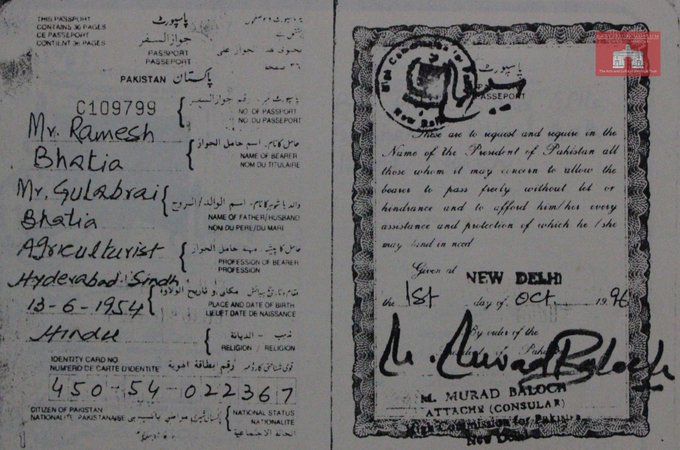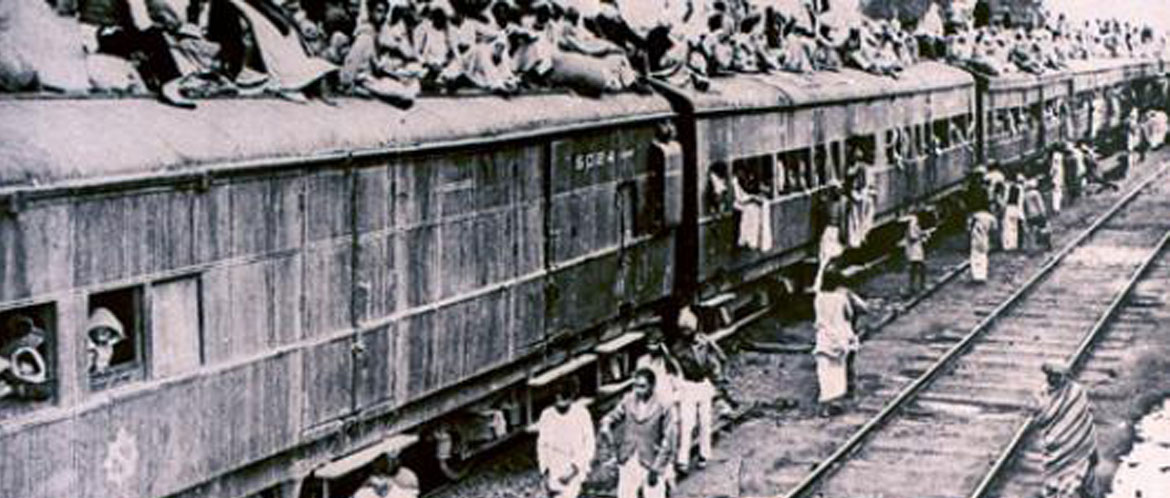
While the angst of spending days and nights homeless and penniless, didn’t reach from their generation to ours, seven decades, hence, we, the Sindhis, continue to battle an identity crisis – more on the inward than on the outward.
*“Yesterday on the banks of Sindhu yearning for Ganga,
Today, on the banks of Ganga, praying for a glimpse of Sindhu” – (Hari Dilgir)
By Kriti Tulsiani
After the 1947 partition, many Sindhis sailed from Pakistan to India leaving behind their ancestral homeland, wealth and friends and family. Not many of them speak about what they had left in the land that was once theirs but instead choose to highlight the tales of survival and re-establishment in a land unknown. It’s quite possible that the historical knowledge of the current generation of young Sindhis may not be on fleek and that even though we tout ourselves to be opinionated on partition matters; we’ll never understand the extent of anguish, helplessness and pain that people went through as they battled and survived the 1947 period.
But what we do know and understand, perhaps, is that we’re at a loss – a loss of a consolidated identity, a loss of a conscience binding the Sindhis together, a loss of oneness as our mother tongue fades away and a loss of our history, as nearly all from migrant population burn to ashes.
If one’s well-acquainted with partition memoirs, they’d know that unlike experiences of Punjab, Bihar and Bengal (to a certain extent), the case of Sindh consists of relatively fewer episodes of violence and bloodshed and more of internal distress and the pain of losses. Hindu Sindhis, in entirety, left their homeland behind and moved to an unknown Indian land with a sheer inability to relocate on the new soil due to a lack of a consolidated linguistic state. Zar, zameen, zoru – roughly translating to wealth, land and wife – sum up the major torments of the Sindhi refugee or rather, a Sindhi displaced.
While the angst of spending days and nights homeless and penniless didn’t reach from their generation to ours, seven decades hence, we the Sindhis, continue to battle an identity crisis – more on the inward than on the outward.
The community, of which little is known, is now colored by the gross misrepresentation in cinema as a money-minded and selfish clan. A community too scattered and small, Sindhis, till date, don’t have a state to call their own or a political representation to fight for their rights. In fact, even as late as 1967, the language was not regarded as an Indian language.
Many kids during my school days questioned as to why I’d call my grandmother amma and not dadi and many of them in my college, after knowing that I’m a Sindhi, commented on how I’d have a certain “Pakistani-touch” to my look. Some of them cited how they’d prefer killing a Sindhi over a snake and some even quipped how our community belonged in Pakistan and not here.
 However, I failed to make them understand that even though the current generation hasn’t experienced the partition and displacement first hand and that they’re yet to visit Pakistan, a part of them will always live there – a part that yearns to visit its roots, a part that longs for walking on lands that our grandparents called home and to see if any of it still remains. A part whose identity still juggles between two nations and a part that still wishes to thrive on the shared language and culture across the border and somehow, stand up in solidarity with one another.
However, I failed to make them understand that even though the current generation hasn’t experienced the partition and displacement first hand and that they’re yet to visit Pakistan, a part of them will always live there – a part that yearns to visit its roots, a part that longs for walking on lands that our grandparents called home and to see if any of it still remains. A part whose identity still juggles between two nations and a part that still wishes to thrive on the shared language and culture across the border and somehow, stand up in solidarity with one another.
________________________
Courtesy: News18 – Published on August 15, 2017
* Ganga and Sindhu